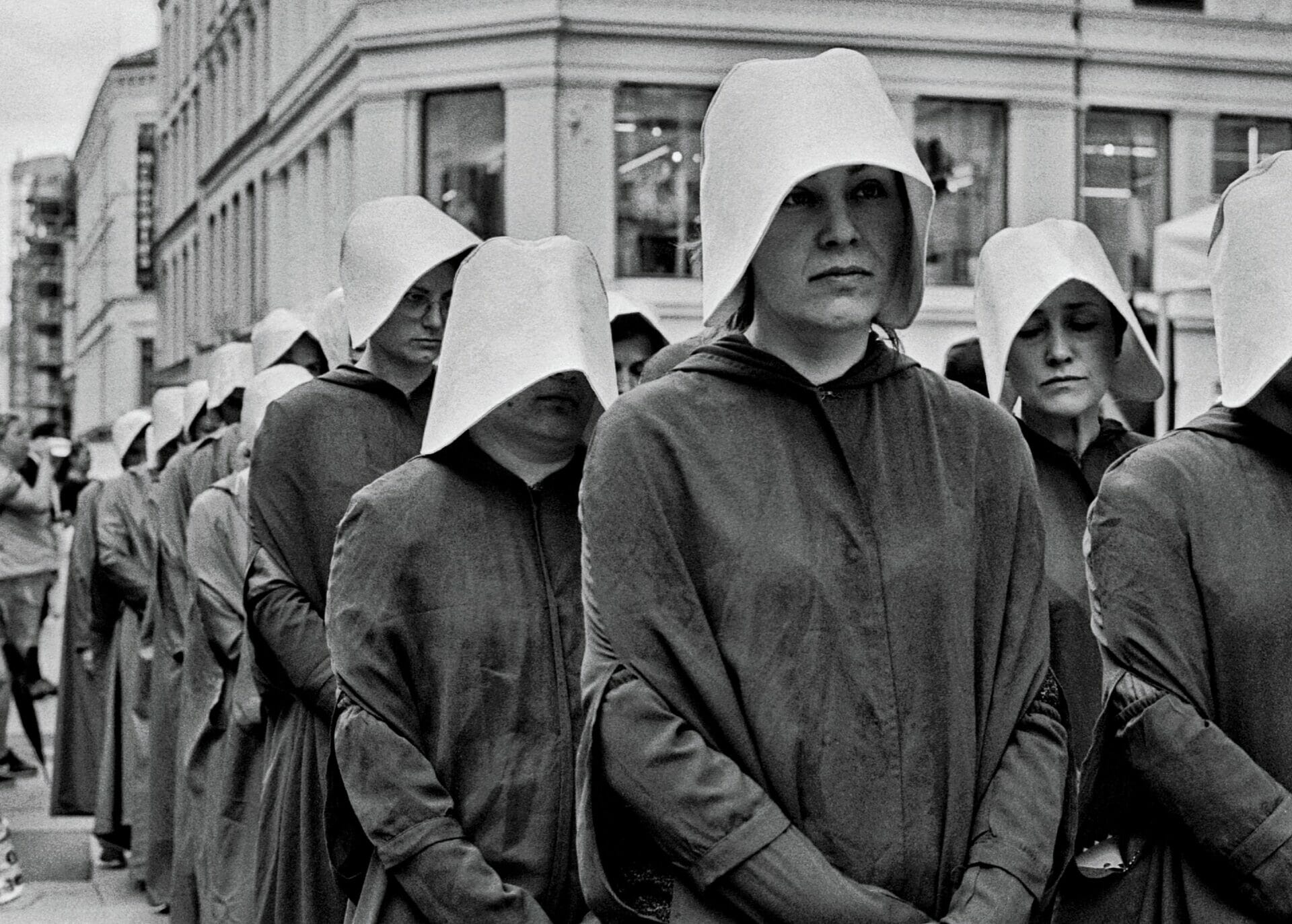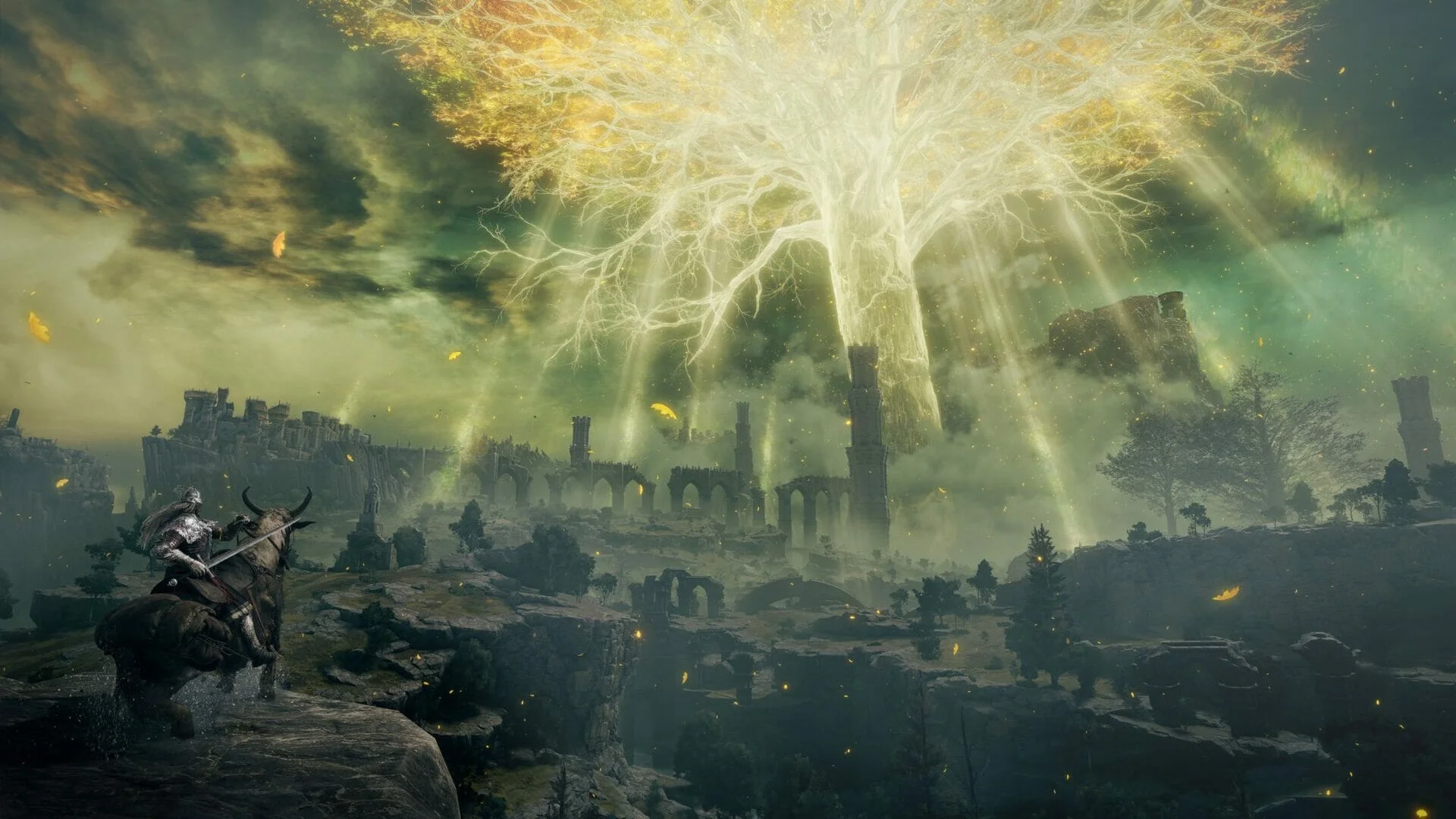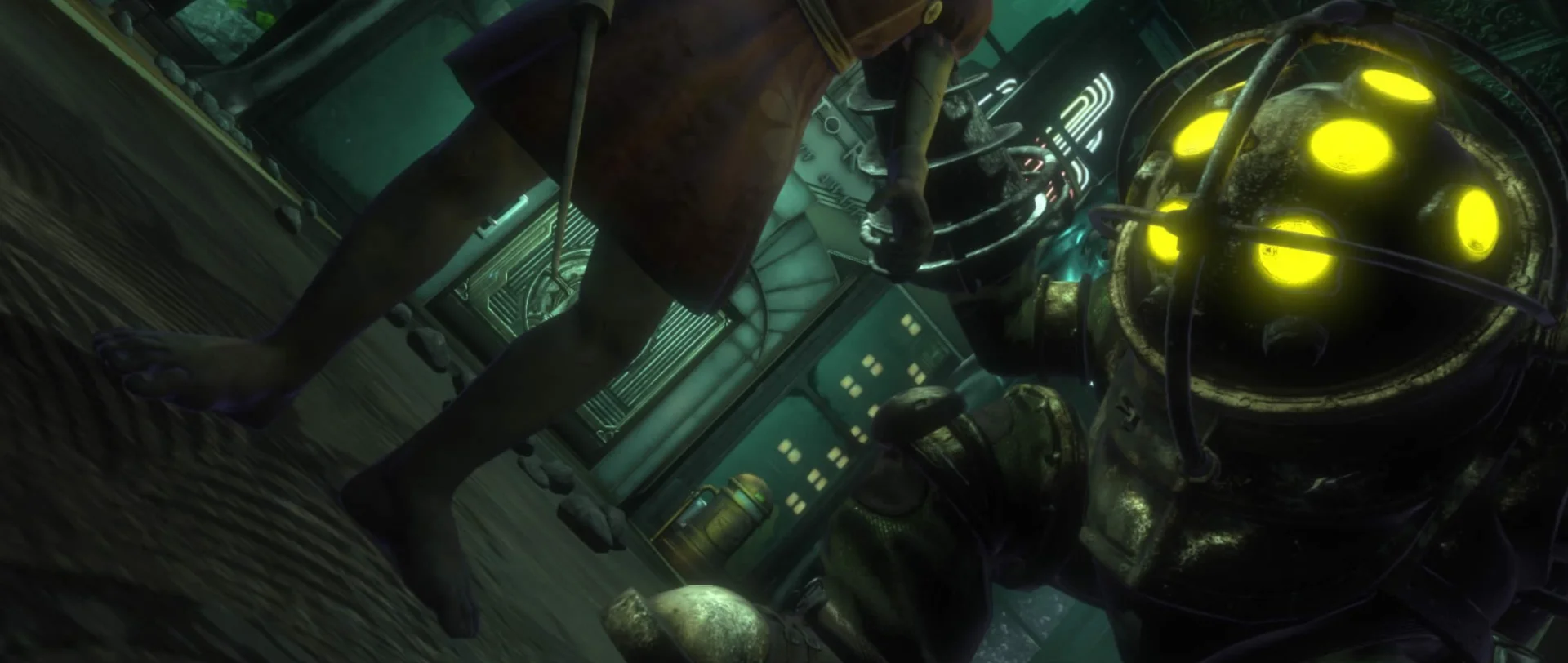
BioShock | A utopia gone berserk
Game designer
Art Director
Lead Composer
Publishing Year
Type of game
Genre
Country
Released in 2007 by Irrational Games (now called 2K Boston), BioShock was born from the wish to create an innovative gaming experience that went beyond the limits of its genre. It combined different styles of gameplay – bio-punk, survival horror and RPG games – as well as thematics never tackled before by a video game. United with timeless visuals, it became one of the most immersive titles in game history, whose compelling narrative still holds up to this day.
Welcome to Rapture
It is 1960 when Jack, the sole survivor of a plane crash in the Atlantic Ocean, finds the secret access to the underwater city of Rapture. While built by its founder Andrew Ryan to be a perfect society, the player soon learns that something has gone terribly wrong. It is up to Jack to discover what happened as well as survive Rapture’s many perils, with only the voice of a man named Atlas as his guide.
A mix of art deco architecture and dieselpunk aesthetic, BioShock‘s art style shines for its uniqueness. To the point that Rapture is unforgettable to anyone who ever played it. Its visuals succeed in creating an atmosphere that is both eerie and captivating, which compels the player to explore. As we see with Dark Souls and Shadow of the Colossus, it is proof that video games can be almost akin to art.
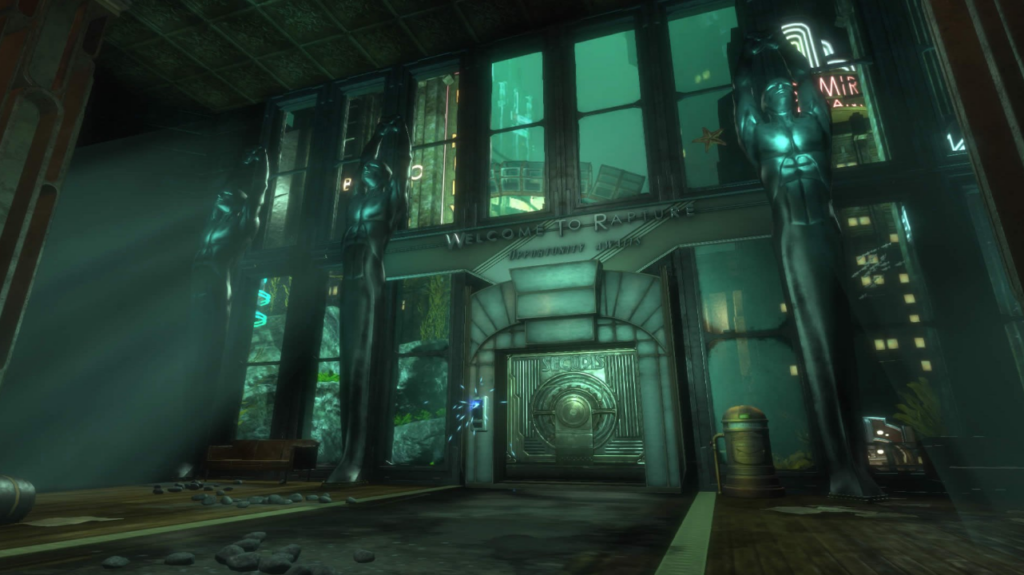
How BioShock redefined the first-person shooter genre
One of Irrational Game‘s goals with this title was to innovate what the FPS genre could be, once freed from its repetitive tropes and linear storylines; these are limitation issues presented even in popular FPS video games such as Call Of Duty and the Halo series. BioShock manages to revolutionize by introducing the concept of in-game choices, embodied in the orphan girls known as Little Sisters. Jack will have to choose whether to spare or kill them for their power; a moral decision with a great impact on the story.
A second essential improvement is the variety of playstyle given to the player. The wide combinations of weapons, tonics and serums encourage experimentation and guarantee that no two gameplays will be the same. An approach that subverts the monotony of the genre while improving its replayability value.
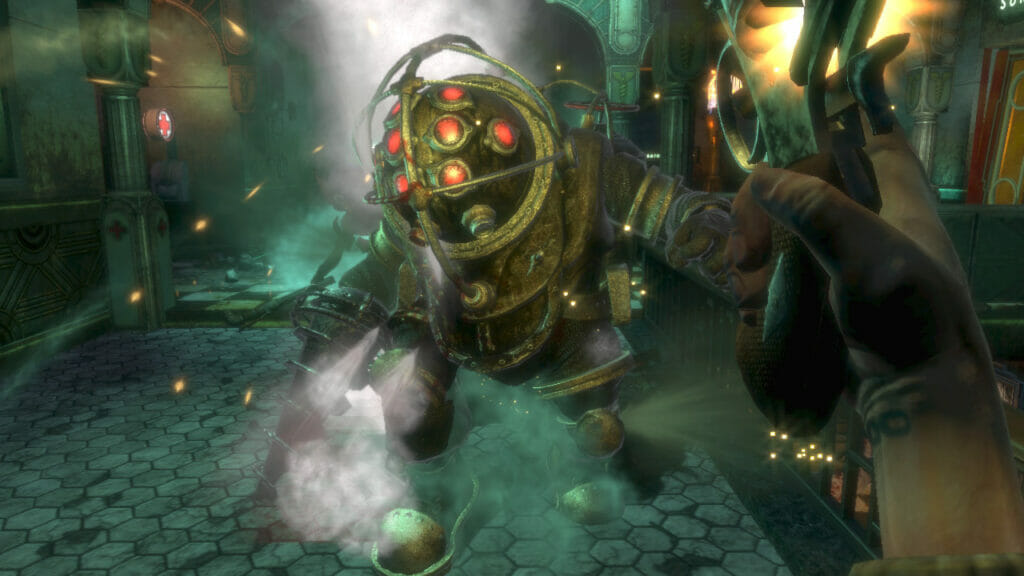
Last but not least, the survival horror influence in the interaction with the environment, is inspired by the Resident Evil franchise. From searching for resources, to crafting supplies to making the best use of the limited ammo. All the while facing the psychological fear induced by a combination of claustrophobic ambiance, eerie lighting and sound design. A clever mix of elements later found in the horror sci-fi game series Dead Space.
Philosophical influences in BioShock
Objectivism is a philosophy first outlined by writer and philosopher Ayn Rand in her novel Atlas Shrugged. It defines the highest moral good as acting in the name of one’s own happiness. In a society founded on selfishness, the government should pose no limits to human freedom, nor intervene in its economy. Rapture itself is based on this concept: a capitalist city without any legal or ethical limits to hinder its development.
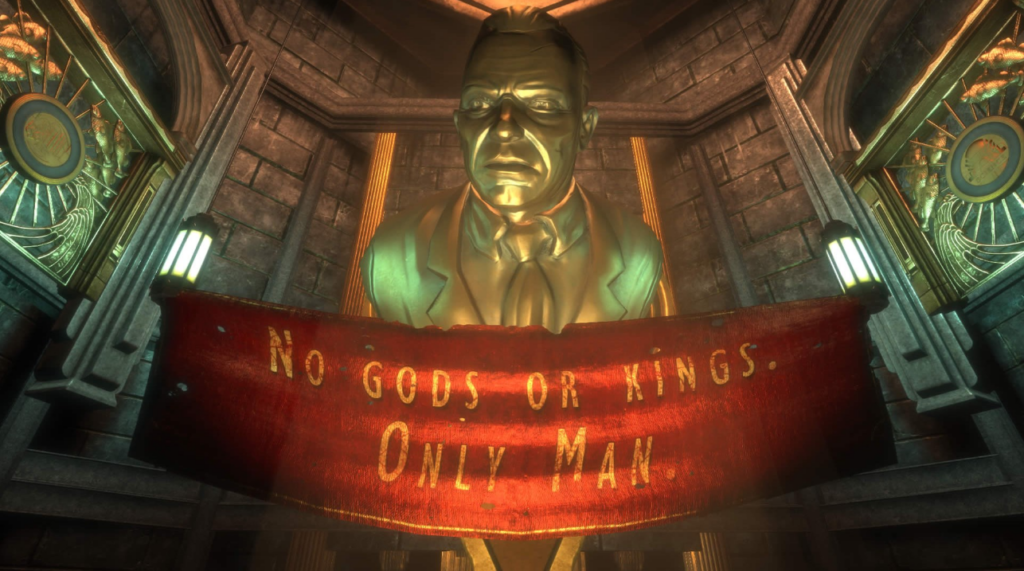
Such a vision could only belong to the fictional game character, the ambitious magnate Andrew Ryan, who never let morality stand in his way. He chose to round up the elite of his time in an isolated utopia in which to escape the post-WW2 surface world. And even though Rapture experienced both economic growth and scientific advancements, it was doomed to collapse under its own weight.
Because a society that idolizes self-interest cannot stay pacific: once ethics are discarded, any ideal is bound to be corrupt, and this is a lesson taught by George Orwell in his dystopian novel 1984. BioShock shows the faults of this philosophy in Rapture’s failure, while rewarding acts of altruism and self-sacrifice. Hence why choosing to help the Little Sisters is such a relevant moral choice, not only gameplay-wise but also in terms of socio-political commentary.
Narrating the downfall of a dream
BioShock is as rich narrative-wise as it is in engaging in its gameplay, but what makes it stand out is how seamlessly these two elements blend together. In particular, the title relies on audio logs to narrate its story. A clever expedient that not only does not disrupt the flow, but also enhances the immersion. It allows for Rapture’s history to be discovered piece by piece by listening to the voices of its citizens, brought to life by the compelling writing. The result is a series of short stories that shape a much bigger, detailed picture of the in-game events. Which in turn contributes to increasing its believability and realism in the player’s eyes.
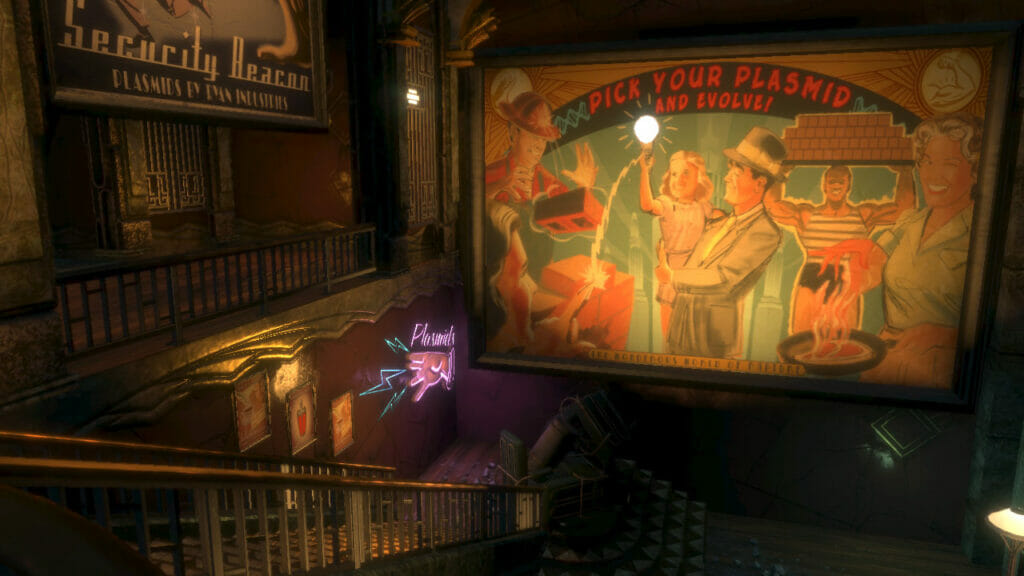
This narrative is so effective because it is exclusive to the medium, and works best when playing off discovery. A buildup culminating in an exceptional twist that plays off the core mechanic of video games and addresses the audience itself, and is the suitable conclusion for a title that made storytelling its strong feature, offering an unforgettable experience and a reflection on the medium itself.
Tag





